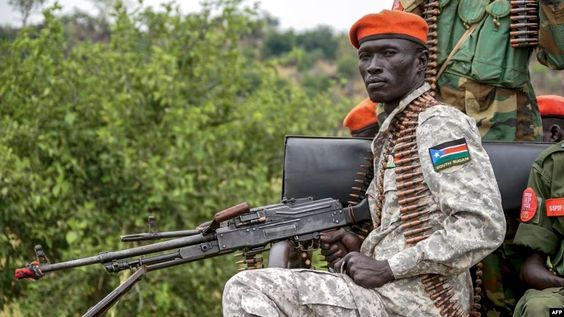Africa
Sudan continues to be embroiled in a relentless battle, with no end in sight and no control over the rampant abuses and atrocities

The conflict in Sudan began seven months ago, and there is still no sign of an end in sight.
There are numerous reasons why this battle might last even longer, according to Mohamed Osman, a researcher for Human Rights Watch who focuses on Sudan.
“The culmination of regional and international failure in their engagement in Sudan on one hand but equally on the other hand it speaks volumes to the two generals, Abdel Fatah al-Burhan and Mohamed Hamdan Dagalo Hemedti, and the way they are waging the war with significant civilian harm,” Osman said. “It’s unfortunately something we may continue to see if these generals are not fearing any set of consequences.”
A senior UN official issued a warning on Friday that violence against civilians in Sudan is “verging on pure evil” as the country’s humanitarian crisis deepens and ethnic strife in Darfur’s western region intensifies.
The majority of attempts to arbitrate between the two generals—who were previously buddies but are now fierce rivals—in April failed. The United States-Saudi Arabian-led peace negotiations in Jeddah were put on hold in June, picked back up last month, and then adjourned once more without a cease-fire.
“Not really seeing protection for civilians”
IGAD, the regional East African bloc that represents the African Union, along with Saudi Arabia and the United States released a joint statement stating that the warring parties had agreed to facilitate humanitarian relief and execute measures aimed at building trust.
It’s difficult to imagine any progress coming from any talks if there is no system in place to punish or stop crimes, according to Osman.
READ ALSO: Sudanese refugees in Darfur are reporting a rise in ethnic cleansing incidents
“If we are looking at the constellation of the Jeddah process in particular, two things stand out,” he stated. “The first is the striking underrepresentation of civilian voices and players, including civil society organisations, protest organisations, and other important actors. The second point is that, thus far, we have not really observed any issues with civilian protection or accountability.”
Insufficient surgical supplies
Doctors Without Borders, often known by its French abbreviation MSF, issued a warning on Tuesday regarding a ban imposed by the Sudanese army that they claim is prohibiting the transportation of life-saving surgical supplies into parts of Khartoum under the authority of RSF forces.
MSF’s deputy manager of emergencies for Sudan, Claire Nicolet, provides an explanation of the arguments made in favour of the prohibition.
“It was a bit unclear but then it was clarified that the idea is for us not to treat RSF soldiers inside these hospitals.,” Nicolet added. “Problem being that most of our patients are not even fighters and problem being as well that a fighter who is wounded is not anymore a fighter anyway by humanitarian law.”
According to MSF, 60 injured persons, including women and children, were treated at Bashair Teaching Hospital on September 10, the day of the bombing of Khartoum’s Gorro market, which claimed 43 lives.
Nicolet told VOA that MSF was forced to cease doing surgeries in that hospital in October due to the restriction.
One of the few establishments in southern Khartoum with a fully operational operating room is currently the Turkish Hospital. However, MSF reported that there aren’t even enough supplies left at the hospital to last a month.
“The war is still going on for Khartoum, according to Nicolet. “To be honest, things are getting more and more complicated due to the lack of supplies and the inability to move our team in and out at the moment, but our team is still managing to work.” Thus, we continue to receive a large number of injured patients as well as many women for C-sections and deliveries. Many kids or patients in the paediatric realm.”
Nicolet added that other problems exist in other regions of the nation.
“In Wad Madani…there’s a cholera outbreak at the moment so the team is busy with this,” Nicolet said. Additionally, the number of people living in the city has increased fourfold due to the exodus from Khartoum…Furthermore, the current state of affairs in Sudan is nearly impossible for anyone to survive, given the utterly insane pricing in the markets.”
General Al-Burhan of the Sudanese Army met with President William Ruto of Kenya during a recent visit; previously in the conflict, Ruto had been rejected by General Al-Burhan as the chief mediator from the IGAD bloc. They all decided to collaborate on developing a framework for putting an end to the conflict, which included figuring out how to quicken the Jeddah process in order to bring about the end of hostilities in Sudan.
